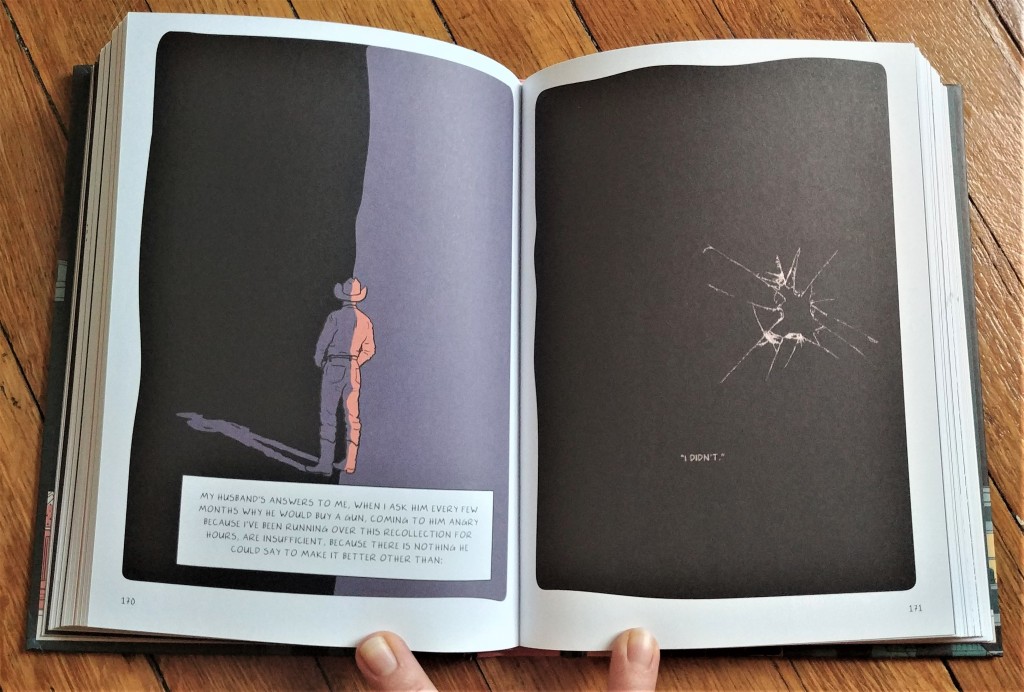By Kristen Radtke, Published by Pantheon Books, 2021
January 21, 2022

I am drawn to books about loneliness. A Biography of Loneliness, The Outsiders, The Love Song of J. Alfred Prufrock and Other Poems, and books filled with similarly lonely characters and tropes of seclusion gather on my shelves. And now, thankfully, Kristen Radtke’s Seek You: A Journey Through American Loneliness will join them.
Note the transition Radtke uses in her book’s title: through. This choice connotes not an ending but a perpetuation. Loneliness, one comes to accept while reading Radtke’s graphic essay, will continue on, leaving only to return when we least expect it. Do you feel better yet?
Seek You says, “You are not special in the abundance of vacant nights and empty ice cream pints you’ve amassed in your lifetime.” But also, the book reassures, “You may be lonely, but so is everyone else.”
For years, I held a torch for loneliness, making it my own small claim to fame. When I was younger, I tallied my feats against those of others: Oh, you’re lonely? Did you write letters to yourself last night while sobbing, imaging your crushes had sent them to you? No? Well then.
Seek You is brilliant and riveting. Many times, I put the book down only to pick it up again as a combination of fear and love coursed through me. I was afraid of understanding my own loneliness while, at the same time, adoring how Radtke spoke of hers in ways which mirrored my own.

“The days are loud and long,” she writes, “and on some exhausted evenings, the simple existence of others feels like an inconvenience” (32). I will admit to feeling this exact thing. Though I am surrounded by family and friends and a loving partner, I nevertheless desire some days to be rid of them. Radtke, in her own admittance, embraces the duality which tethers the two poles of loneliness: that we may wish to get rid of it while also choosing to seek it out. This is the danger of isolation. The longer we remain in it, the harder it becomes to pull ourselves back out.
“If loneliness can cause us to lose sense of what is real, how do we function within a country that is constantly telling us what we trust and know cannot be trusted or known?” (151). How do we find a way though our own American loneliness when so much of media, politics, and everyday stories compel us to turn away, to turn inward and into our own selves?

The news is often a “hyperbolic cocktail of racism and terror” (155) and the only way is not around or beneath, but through. Over the course of the graphic essay, Radtke links her father’s endearing obsession with late-night radio signals, the American ideal of the lone cowboy, gun violence, online cuddle sites, and psychologist Harry Harlow’s influential albeit highly problematic studies of social isolation on rhesus monkeys.
What comes of these links is a narrative chain that allows the reader to understand that which plagues the United States. It doesn’t matter, she seems to suggest, how many Instagram followers you have, or how long you’ve been happily married to your spouse, or how famous you become as an adult. Loneliness, in some form, will likely stick around.
Radtke cites a cyclical argument she has with her husband about the two guns he owns (no matter that they are locked away in a closet states away from where they live). His answers, she says, each time she asks about the guns, “are insufficient because there is nothing he could say to make it better” (170). This is gutting. I, too, have come to my partner after “running over [a] recollection for hours” of something he said weeks or months prior, ready to take aim and prove he is fallible and that I, for loving him, am fallible, and that each of us is destined to be apart, and alone.

“Why do we do this to ourselves?” Seek You asks. With Radtke’s aid, readers see that the choice to keep moving onward – to acknowledge the loneliness and make peace with it – is the cure. Loneliness is not a burden, nor a curse. It simply is part of human existence.
If you think this sounds depressing, you’re not wrong. But, to be fair, it is that unapologetic nature of Seek You which makes it so powerful. In this book, images rely on loose lines filled with contrasting swaths of blues and pinks, and some images are made harsher with punches of bright oranges and reds. The occasional page of solid black looms. Radtke illustrates the places loneliness tends to gather: in dark blue ocean waves and clotted, rain-filled skies; in the pale, longing faces of infant rhesus monkeys; in the muted pink, cupped palm of a stranger.
You know what I mean, don’t you?
Sincerely, Mad Girl
Leave a comment